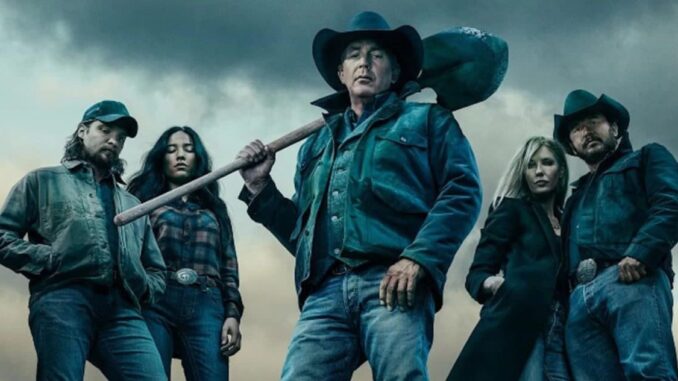
The Shadow of the Viper: When an Actor's Passion Echoes a Villain's Resonance
The sprawling, rugged landscapes of Taylor Sheridan’s Yellowstone universe have always been fertile ground for grand narratives, epic conflicts, and characters carved from the very rock of the American West. Amidst the cattle, the betrayals, and the endless fight for land, certain antagonists emerge not just as obstacles, but as indelible forces that shape the very mythology of the Duttons. One such figure was Malcolm Beck, the chillingly calculating casino mogul, brought to life with sinister elegance by Neal McDonough in Season 2. Now, McDonough's very public campaign to resurrect Beck in a Yellowstone spinoff isn't merely an actor’s desire for work; it's an illustrative example of the enduring power of a truly great villain, the unique bond between performer and character, and the ever-expanding canvas of a beloved fictional world.
Malcolm Beck wasn't merely a brute force; he was a calculating predator, a cobra in the chicken coop of the Yellowstone universe. Unlike the more visceral threats the Duttons typically faced – rival ranchers, ambitious politicians, or internal family strife – Beck represented a different kind of evil. He was intelligent, sophisticated, and his ruthlessness was cloaked in the polished veneer of a businessman. He didn't ride a horse into battle; he deployed lawyers, exploited loopholes, and orchestrated assassinations with surgical precision. Neal McDonough, with his piercing blue eyes and an unsettling calmness, embodied this menace perfectly. He made Beck not just a bad guy, but a terrifyingly plausible one, a man whose ambition knew no bounds and whose moral compass was utterly shattered. His supposed death at the hands of John Dutton, while satisfying in the moment, felt almost too clean, leaving a lingering sense of unfinished business that has evidently resonated deeply with both fans and, most importantly, the actor himself.
McDonough's "campaign" to return as Beck is not the typical industry whisper; it’s a passionate, almost evangelical plea. In numerous interviews, he has expressed a profound connection to the character, often stating his belief that Beck, a man of such cunning and foresight, would surely have had a contingency plan, or perhaps even survived his seemingly fatal wounds. This isn’t just an actor lobbying for screen time; it’s an artist advocating for the continuation of a character he clearly cherishes and believes holds more narrative potential. It illustrates the profound impact a role can have on a performer, blurring the lines between the actor and the persona, and fostering a desire to see that character's journey truly concluded, or, in Beck's case, revived. McDonough's insistence is a testament to the depth he found in Beck, moving beyond the script to envision a future for a villain whose shadow, he clearly believes, should still loom large.
The very premise of a "Yellowstone spinoff" provides the ideal canvas for such a resurrection. Taylor Sheridan's universe is rapidly expanding, with prequels like 1883 and 1923 delving into the Dutton family's history, and the highly anticipated 6666 promising a new frontier. These new series offer numerous possibilities for characters to reappear, either through flashbacks, parallel timelines, or simply by revealing their survival. A villain of Malcolm Beck’s caliber, one who left such an indelible mark, offers rich narrative possibilities for any of these offshoots. Imagine a 6666 storyline where Beck's Texas connections are explored, or a contemporary spinoff where his criminal empire, presumed defunct, re-emerges under new leadership, forcing a new generation to contend with his legacy. His return would not feel like a forced gimmick but a natural re-opening of a potent, unresolved wound in the Yellowstone saga.
Ultimately, Neal McDonough's fervent desire to revisit Malcolm Beck is illustrative of several compelling truths. It underscores the vital role complex antagonists play in enriching fictional worlds – they are the necessary friction that sharpens heroes and drives plots. It highlights the unique relationship between actors and their most impactful roles, where creative immersion can lead to a passionate advocacy for a character's destiny. And finally, it showcases the boundless potential of an expansive narrative universe like Yellowstone, where the lines between life and death, past and present, can be blurred for the sake of compelling storytelling. Whether Taylor Sheridan heeds the call remains to be seen, but the very existence of McDonough's campaign proves that some shadows, particularly those cast by a viper like Malcolm Beck, are simply too compelling to remain in the dark.
